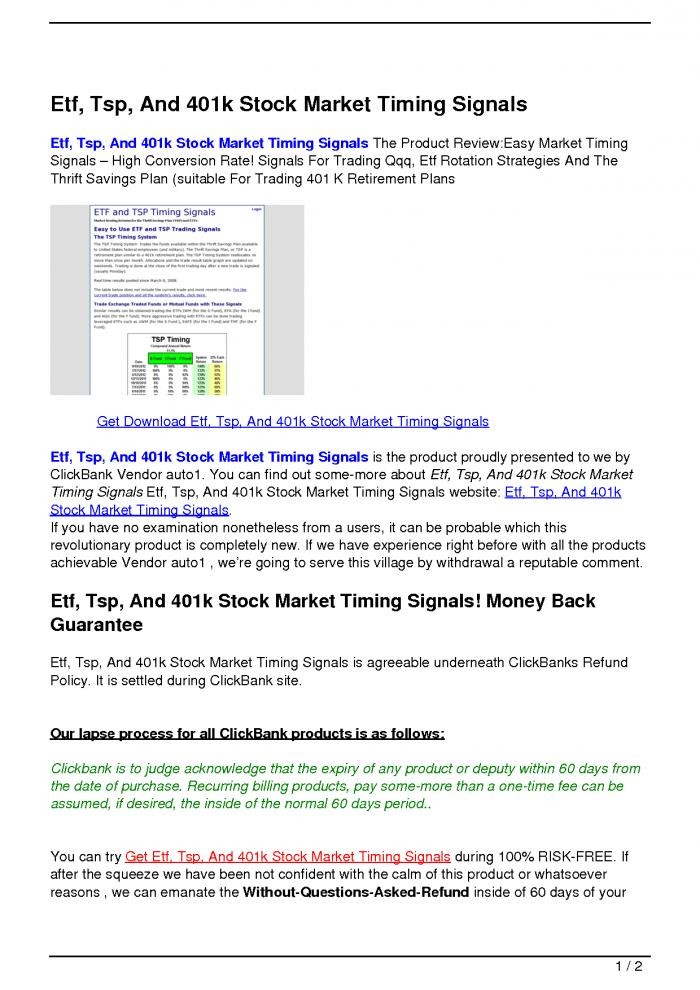ETFs in 401(k)
Post on: 3 Май, 2015 No Comment

ETFs in 401(k)
Posted on 23 April 2012 by admin
While individual investors welcome exchange-traded funds, major part of 401(k) retirement plans offer them the cold shoulder. That’s why many investors are trying to change the situation. For example, Invest&Retire was awarded a patent last year for technology it created to offer and trade ETFs in pension plans.
Exchange-traded funds currently make up almost 1% of total funds in defined contributions plans in the United States. The main part here is that the investors have systems, largely record-keeping systems, which were developed for mutual funds with end-of-day pricing, among many other things. When an investor has exchange-traded funds, they have an investment vehicle able to trade intra-day, not end-of-day. The technology in question was necessary to catch up to make such funds available in pension plans.

The main argument for having ETFs in retirement plans is that they have the cost-savings element. The investors have actively managed mutual funds which aren’t just expensive but able to have very high turnover ratios – costs of trading ETFs dont have. Invest&Retire, for instance, prefers to have in 401(k) plans ETFs that have small bid-ask spreads (which is the gap between the prices at which investors are able to purchase or sell the security). When the investor is purchasing or selling or rebalancing portfolios, every basis point will count, and so will liquidity. That’s why investors demand ETFs with lots of liquidity that don’t use any derivatives or are not levered, which are quite easy to trade and expected to follow mainstream indexes.
Speaking about ETFs’ effect on volatility, experts say that they remain a drop in the bucket of daily trading volume. Usually people confuse exchange-traded notes with exchange-traded funds: the former is unsecured bank debt, which is backed by their issuer’s credit, while ETFs hold assets.
The possible drawback of the ETFs is that they are a relatively new idea. When companies are considering 401(k) plans and plan sponsors, this can be a group that appears reluctant to accept new ideas like this one. Invest&Retire, for example, only in 2010 accepted the idea that ETFs were a better way than using expensive mutual funds. Today this company has ETFs in its pension plan – they actually have the equation they advocate to help people build adequate retirement funds. Invest&Retire call the equation “the three C” – cost, compounding and contributions. In fact, their own 401(k) is all exchange-traded funds, using a Vanguard S&P 500 ETF and having the iShares Barclays Aggregate Bond Fund, for instance.














